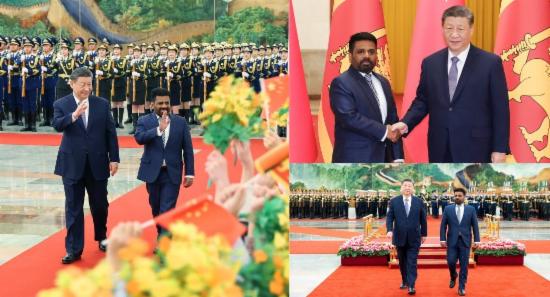.webp)
-735567.jpg)
Pro-China Candidate Wins Maldives Election
COLOMBO (News 1st) : The Maldives, a strategically located country in the Indian Ocean, has elected a pro-China president, Mohamed Muizzu. This is a major setback for India, which has traditionally been the Maldives' closest partner.
Muizzu, who ran on a platform of closer ties with China, defeated the incumbent president, Ibrahim Mohamed Solih, who had strengthened relations with India. Solih's defeat is seen as a sign of China's growing influence in the region and a setback for India's "India First" policy.
The Maldives is located in a key maritime chokepoint, and both India and China are vying for influence in the country. India has long sought to maintain its presence in the Maldives in order to monitor its maritime borders and keep its rivals at bay. China, with its rapidly expanding naval forces, also wants access to such a strategically important location.
In recent years, China has made significant investments in the Maldives, including infrastructure projects such as ports, bridges, and airports. China has also provided the Maldives with military aid and training.
The election of a pro-China president in the Maldives is likely to lead to a further shift in the country's foreign policy. It is possible that Muizzu's government will allow China to deploy military assets in the Maldives, which would be a major concern for India.
The election of a pro-China president in the Maldives is a significant development that will have implications for the security of both India and China in the Indian Ocean. It is important to note that the Maldives is not the only country in the region where China is making inroads. China is also expanding its influence in other countries such as Sri Lanka, Bangladesh, and Myanmar. This is part of China's broader strategy to increase its influence in the Indo-Pacific region.
India is facing a major challenge in countering China's growing influence in the Maldives and other countries in the Indian Ocean. India will need to work with its allies and partners to develop a coherent strategy to deal with China's growing assertiveness in the region.
Other Articles
Featured News





.png )








-777755_550x300.jpg)
-777749_550x300.jpg)
-777743_550x300.jpg)
-777316_550x300.jpg)
















.gif)